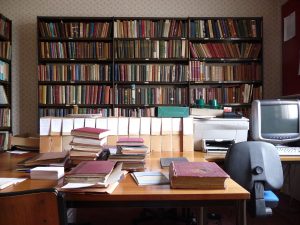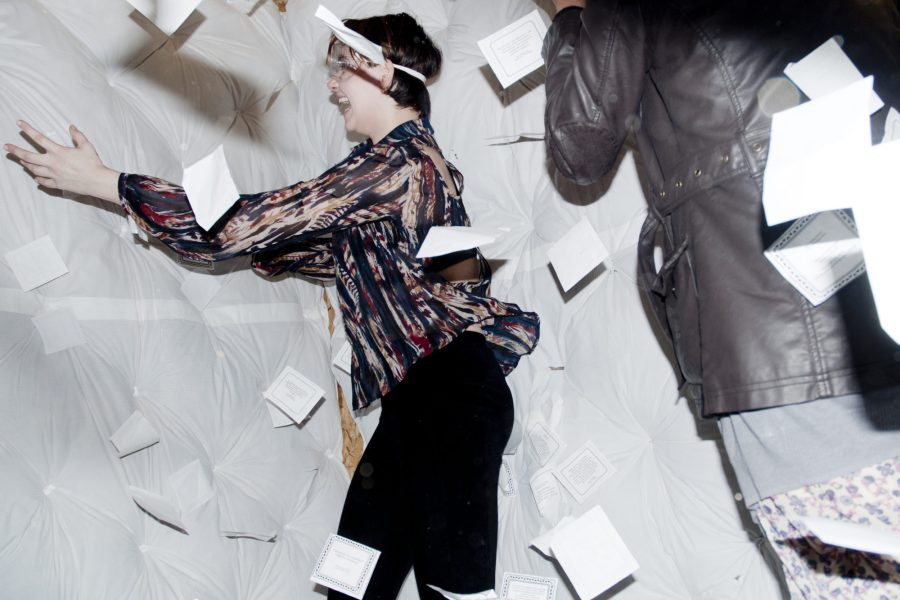Artists Ruth Beale and Amy Feneck met in 2006 when they worked together at the interdisciplinary collective, General Public Agency. They began collaborating in 2010. In the first of two posts for the JVA Blog, the artists write about The Working Class Movement Library and how important a resource it has been to their practice.
The Working Class Movement Library was started by Ruth and Eddie Frow and was initially a semi-private collection kept in their house in Manchester. Their passion for acquiring anything to do with working class history and struggle meant that by 1987 the collection had become too big and was moved to its current location at 51 The Crescent, becoming a public reference library, and eventually a charity. The amazing collection includes books, pamphlets, personal archives, photographs, plays, poetry, songs, banners, posters, badges, cartoons, journals, biographies, newspaper reports and more. It tells the story of Britain’s working classes from the early days of industrialisation to today. Given its beginnings as a personal collection and transition to public resource, we are really interested in the library as a legacy of self-education, and as a political tool.
In January 2011 we approached the library with a proposal for a programme of artists residencies and commissions. Amy then undertook a six-month residency there, concluding with an exhibition of new artwork and library material. Following this we re-thought the idea of the programme and realised that there was an exciting opportunity for something bigger, something beyond the library. Since then, we have been developing ideas for artworks that will take the collection out into the world.
We are particularly fascinated by the library’s unique character and interested in how it could provide a means of reflecting upon current political and social issues, for example: What working class means and the fragmented workforce of the neo-liberal economic climate and how the collection defines the ‘class struggle’. We are also interested in the library/archive’s relationship to contemporary culture. The lineage between historical events and current politics and the relationship between arts and activism. Finally we see it as a living history, which raises questions about how history is told and retold; how archiving produces and defines history and how multiple histories can co-exist.
Ruth Beale and Amy Feneck

